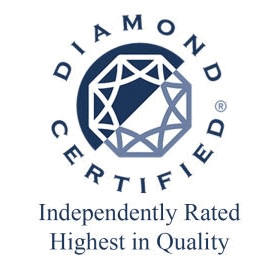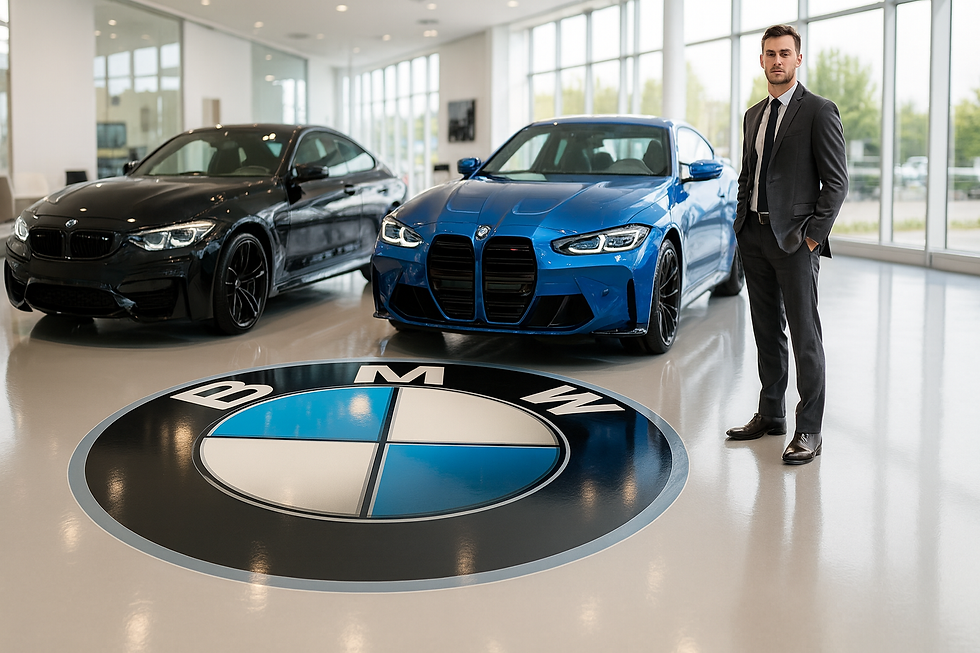What is the difference between epoxy flooring and garage floor paint?
- htouchstonecare

- Sep 19, 2025
- 6 min read

If you're planning to upgrade your garage floor, you’ve probably come across two popular options: epoxy flooring and garage floor paint. Although the terms are often used interchangeably, they are not the same. In fact, choosing the wrong one can cost you more in the long run. So what is the difference between epoxy flooring and garage floor paint?
This blog will break down the key differences, help you decide what works best for your space, and explain why more San Jose homeowners are choosing epoxy flooring as their long-term solution.
Quick Comparison Table – Epoxy Coating vs Garage Floor Paint
Feature | Garage Floor Paint | Epoxy Flooring |
Durability | Low | High |
Thickness | 1 to 2 mils | 8 to 12 mils |
Lifespan | 1 to 3 years | 15 to 20 years or more |
Resistance | Prone to peeling and staining | Resistant to chemicals, stains, and impact |
Curing Time | 24 hours | 3 to 5 days |
Installation | DIY-friendly | Requires professional application |
Best Use | Light-use garages or rental units | High-traffic garages and long-term ownership |
What is Garage Floor Paint?
Garage floor paint is typically a water-based latex or acrylic product. It’s easy to apply and easy on the wallet, which makes it popular for quick fixes. But what it offers in convenience, it lacks in longevity and durability.
Ingredients and Composition of Garage Floor Paint
Some garage floor paints are marketed as “1-part epoxy paint.” That sounds impressive, but it’s mostly a marketing term. These products include a small amount of epoxy resin blended with standard latex paint, offering only a slight improvement over basic paint.
Craftsman Concrete Floors explains this confusion in detail and confirms that these coatings don’t chemically bond to concrete like true epoxy does.
Performance and Lifespan
Painted garage floors typically start to show wear within a year or two. Peeling, hot tire pickup, and discoloration are common problems. In regions like San Jose, even light humidity can reduce a painted floor’s lifespan.
Stronghold Floors outlines how many homeowners end up redoing their floors multiple times due to failed paint applications.
What is Epoxy Flooring?
Epoxy flooring is a professional-grade solution. It uses a two-part thermosetting resin that chemically bonds with the concrete surface. The result is a thick, glossy, seamless coating that stands up to everything from car tires to chemical spills.
How Epoxy Coatings Are Applied
The epoxy installation process includes:
Surface prep through diamond grinding or shot blasting
A primer coat
A broadcast layer (optional decorative flakes or pigments)
A topcoat for protection and shine
This is not something you pick up at the hardware store. True epoxy floors are custom-installed by trained professionals. Learn more about prep methods on our Concrete Polishing page.
Durability, Thickness, and Longevity
Unlike paint, epoxy flooring is 8 to 12 mils thick and built to last. It resists wear, impact, and moisture. In fact, Verified Market Research shows the epoxy flooring market growing rapidly because of this performance.
Many San Jose homeowners choose epoxy coatings because they hold up to daily use without needing constant touch-ups or replacement.
What is the difference between epoxy flooring and garage floor paint?: Key Differences That Matter to Homeowners
Let’s take a closer look at how epoxy and garage floor paint compare in terms of value, use, and longevity.
Cost Comparison: Upfront vs Long-Term Value
Paint is cheaper upfront. A gallon can cost less than $50, and many homeowners apply it themselves. But when you factor in reapplication every one to two years, those costs add up fast.
Epoxy floors usually range from $6 to $15 per square foot, depending on style and materials. But they last far longer and require much less maintenance. Flatix Epoxy Coating lists detailed local prices that show what to expect in San Jose.
You can get a custom quote through the Heavenly Touch homepage to see how affordable a long-lasting floor really is.
Wear, Tear, and Environmental Resistance
Paint is prone to hot tire pickup, stains, and surface wear. Epoxy, on the other hand, resists these problems. Whether you're storing heavy tools or parking multiple vehicles, epoxy provides a strong, durable barrier that can take the heat.
Misconceptions Around "Epoxy Paint"
The term "epoxy paint" leads many homeowners to believe they’re getting the same protection found in professional epoxy systems. They are not.
Why It’s Not a True Epoxy Coating
True epoxy coatings form a chemical bond with concrete. Paints—even ones with added epoxy resin—do not. They simply sit on top of the surface and wear off over time.
Amazing Garage Floors explains why this misconception causes disappointment for homeowners who expect more from DIY kits.
Marketing Hype vs Real Performance
DIY paint kits are often 1 to 2 mils thick and offer no real chemical resistance. Professional systems, on the other hand, are customized, layered, and installed using specialized equipment.
Choosing the Right Garage Floor Solution for Your Needs
Not every homeowner has the same goals. That’s why it’s important to match your floor solution to how you actually use the space.
When Garage Floor Paint Might Be “Good Enough”
Low-use garages
Storage rooms with no foot or vehicle traffic
Rental units or short-term projects
Very limited budgets
When Epoxy is the Better Investment
Daily vehicle use
Homeowners looking for long-term results
Clients who want a polished or decorative look
Families planning to stay in the home for many years
Explore decorative flake systems and high-gloss finishes on our Epoxy Floor Coatings page.
Why San Jose Homeowners Should Choose Epoxy
The Bay Area has specific climate challenges that affect floor coatings. Moisture and mild humidity are part of everyday life, and your garage floor needs to be ready.
Local Climate Considerations
Paint doesn’t handle moisture well. Epoxy systems, when properly installed, create a sealed surface that resists water intrusion and cracking.
Boosting Home Value with Epoxy Flooring
Garages are more than storage. They’re workshops, gyms, and sometimes extensions of the living space. A high-end epoxy floor adds function and visual appeal to your home.
Need help getting started? Visit our Contact page and speak to one of our local pros.
Why Professional Application Matters
There’s a reason professional epoxy floors last so long. It’s all about the prep, the materials, and the experience of the installer.
Common DIY Failures
Inadequate surface prep
Improper mixing
Thin or uneven layers
Hot tire pickup
Premature wear and peeling
What Sets Heavenly Touch Apart
Heavenly Touch Stone Care is based right here in San Jose. We understand local homes, soil conditions, and what coatings work best in this region.
Check out our FAQs to learn more about epoxy, concrete polishing, and what to expect during your project.
Conclusion: Epoxy vs Paint – What Should You Choose?
Garage floor paint is affordable, simple, and fine for temporary or low-use spaces. But it has a short life and limited durability.
Epoxy flooring is an investment. It costs more initially, but the performance, durability, and appearance make it worth every penny. For homeowners in San Jose who want their garage to look sharp and function better for the long haul, epoxy is the better choice.
Ready to Upgrade Your Garage Floor? Call Heavenly Touch Stone Care Today!

The team at Heavenly Touch Stone Care installs custom epoxy floors that are built to last. Whether you're working with a blank concrete slab or tearing out a failed paint job, we’ll create a solution that fits your home and your budget.
Contact us today to schedule a free consultation with our San Jose epoxy flooring specialists. Get in touch now
Frequently Asked Questions (FAQ)
What is the real difference between epoxy and garage floor paint?
Epoxy forms a chemical bond with the concrete, creating a durable and sealed surface. Paint only coats the top and wears away faster.
How much does epoxy coating cost compared to paint?
Epoxy coatings usually cost $6 to $15 per square foot. Paint can be as low as $2 to $4, but you’ll likely need to reapply it every few years.
Why does garage floor paint peel under hot tires?
When tires heat up, they soften the paint. The tire’s weight pulls the paint off the concrete. Epoxy resists this because it chemically bonds with the surface.
How long does an epoxy floor last in San Jose?
A professionally installed epoxy floor can last 15 to 20 years with proper care, even with daily traffic.
Can I apply epoxy over garage floor paint?
No. The existing paint must be completely removed first. Epoxy will not bond to painted surfaces, and it could fail within months.





Comments